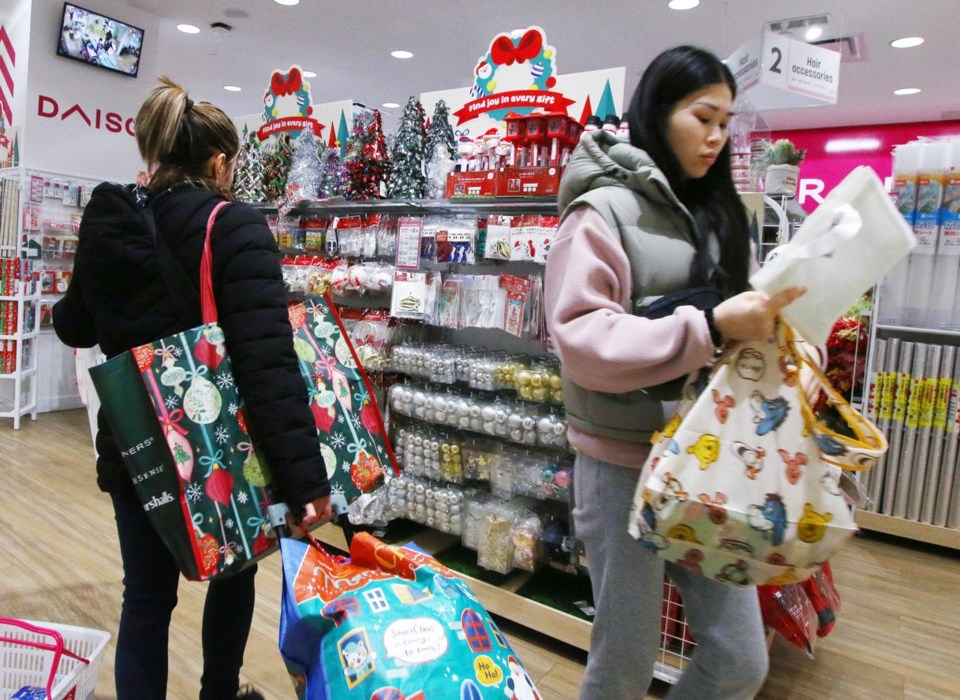Canadians' confidence in a strengthening economy has taken a hit since president-elect Donald Trump won the U.S. presidential election Nov. 5, according to new polling data from Nanos.
There are now almost four times as many Canadians who think the economy is likely to get weaker in the next six months, rather than stronger, the Weekly Bloomberg Nanos Canadian Confidence Index found. One month ago, about twice as many Canadians thought the economy would get weaker within six months, rather than stronger, according to Nanos' research.
Trump on Nov. 25 threatened to slap a 25-per-cent tariff on all imports from Canada and from Mexico until those countries stemmed what he said is a tide of drugs and illegal immigrants coming into the U.S. – something that no doubt added to chilled consumer confidence, according to Nanos' chief data scientist Nik Nanos.
Nanos surveyed 1,000 Canadians in months leading up to Dec. 6, with its survey dropping 250 responses each month and adding 250 new ones to create a rolling total.
Its index for expectations dropped below 50 per cent for the first time in about a year, and was at 48.69, as of Dec. 6. That is nearing the year low of 46.03, one year ago.
Concerns about jobs are on the rise, and are becoming more significant than are fears of inflation or housing, Nanos said.
Nanos separately tracks what the company calls a pocketbook index, which is based on perceptions of personal finances and job security. When that index is mixed with the expectations index, it creates what the company calls an economic mood index.
The newest measure for that index is 51.54 out of 100 Canada-wide. British Columbians have a slightly more sour economic mood than do counterparts in the rest of Canada, given their score of 50.3 out of 100, according to Nanos.
The finding that British Columbians are feeling less confident than other Canadians about their economic futures conforms with what other surveys have found.
B.C. small-business owners are the least confident in Canada that their ventures will perform better in the next three months, according to a Canadian Federation of Independent Business (CFIB) survey conducted in October for a November report.
Their responses determined that they were also the second least confident in Canada that their businesses will perform better in 12 months than they are today, according to the survey.
Only Newfoundland-based small-business owners in October said that they were less confident than counterparts B.C. for that year-ahead outlook.
What makes the low confidence about economic improvement within 12 months most striking is that B.C.’s small-business confidence rate for one year in the future has historically, on average, been No. 1 among provinces, B.C.-based CFIB policy analyst Emily Boston told BIV.
“It's not just the comparison over time, it's a comparison to where we are relative to other provinces in Canada,” she said.



